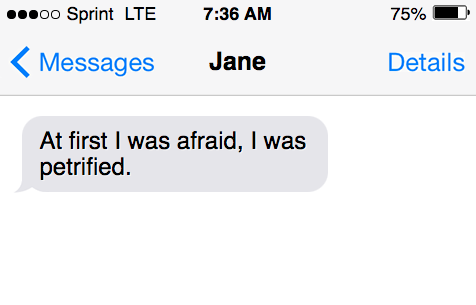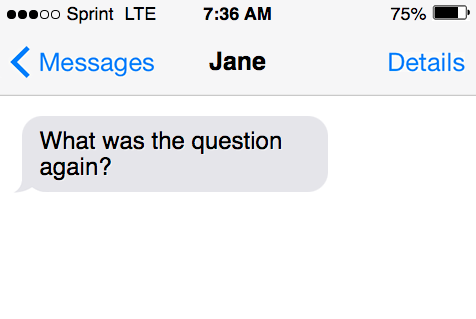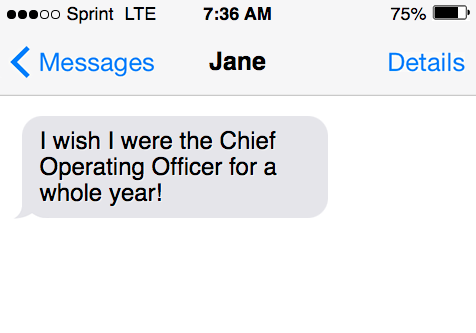“Was” and “Were” are forms of the irregular verb “be”. Usually, verbs have five forms – Infinitive, past tense, past-participle, present-participle, and third-person singular (usually ends in -s or -es). It can get confusing to comprehend which form to use.
Ready to learn the difference? Lets dive right into the worksheet…
Understanding “was” vs. “were”
Let’s take one regular and one irregular verb to understand the various forms a word can take. Let’s take kick (regular verb) and run (irregular verb).
| Form | Regular Verb (Kick) | Irregular Verb (Run) |
| Infinitive (or root form) | (to) kick | (to) run |
| Past Tense | Kicked | Ran |
| Past Participle | Kicked | Run |
| Present Participle | Kicking | Running |
| Third Person Singular | Kicks | Runs |
As you can see in Table 1.0, an irregular verb doesn’t follow the usual pattern. The past-participle form of “run” is “run”. Moreover, the past tense form of an irregular verb doesn’t end in an “-ed.
For regular verbs, the past-participle form is same as the past tense form.

Consider these two sentences for more clarity:
- He had run the marathon before.
- He had kicked that ball before.
“Be”, too is an irregular verb. However, it’s the only irregular verb with more than five forms. And that’s where the words “were” and “was” come in. But before we go on about the past tense of the verb, here’s an overview of all the forms of “be”:
Infinitive Form – be
Past Tense – was (used with first person singular and third person singular) and were (used with second person singular and plural and first and -third person plural)
Past Participle – be, been
Present Participle – being
Third Person Singular – N/A
It’s also worth noting that the verb “be” has three present tense forms (am, is, and are), while all other verbs only have one.
Our focus is on the past tenses of the verb “be” – “was” and “were”. As you progress with this article, you will find more details on the usage and form of “was” and “were”.
| Word | Definition |
| Was (verb) /wəz/ | first and third person singular past of be. |
| Were (verb) /wər/ | second person singular past, plural past, and past subjunctive of be. |
Forms of Was and Were
“Was” is used in the first person singular and the third person singular. For instance, “was” is used with the singular first-person pronoun “I”.
Here is one example:
- I was sympathetic to his cause.
An example of “Was” being used with a third person singular would be:
- He was happy to have me as his guest.
Other third-person pronouns include “she”, “it”, his, hers, theirs, etc.
“Was” is also used with singular nouns:
- The horse was sick of its owner’s antics.
- Disease was rampant among soldiers trapped in trenches.
“Were”, on the other hand, is used with second person singular and plural and first- and third person plural. Essentially, it means that you use “were” with second person pronouns such as “You” and “Yours”, first person plural pronouns such as “We” and “Our”, and third person plural pronouns such as “They”. Similar to “Was”, “Were” is also used when dealing with plural nouns in past tense (for example, “All of the cats were sick that day”).

What is “was” the word?
As mentioned before, “was” is a verb (the first and third-person singular past and plural past of to be). It’s used with singular subjects except for second person singulars (like “You”).
What is “were” the word?
Again, “were” is the past form of the verb “be”, and is used with all plural subjects as well as second person singulars (like “You”). Remember, “were” is the second-person singular past and plural past of to be.
The main point of confusion for students learning the English language becomes determining whether to use “was” or “were” with “You”. However, once the student surrounds themselves with English content, they’ll realize that using “was” with “You” just sounds unnatural.
Consider this sentence, for example:
“You was not a good friend to me” – This is grammatically incorrect (although, you will find the usage of “was” with second person singular in dialects).
“You were not a good friend to me” – Most people comfortable with the English language will recognize that this sentence sounds more natural than the previous one.
But, now let’s take a look at a confusing point that baffles even native speakers of the English Language.
| Past tense of “to be” | Subjunctive of “to be” |
| I was | I were |
| You were | You were |
| He was | He were |
| She was | She were |
| It was | It were |
| We were | We were |
| You were | You were |
| They were | They were |
What is a subjunctive mood?
To address this common grammatical confusion, we first need to take a look at these two example sentences:
1: If I was a millionaire, I would buy all my friends new houses.
2: If I were a millionaire, I would buy all my friends new houses.
One of those aforementioned sentences is grammatically incorrect. Can you figure out which one?
If not, you don’t have to beat yourself up. A lot of people get confused when it comes to subjunctive moods and conditional sentences.
To know which of the aforementioned sentence is correct, let’s first understand subjunctive mood.
A grammatical mood (or writing tone) is how the writer wants the reader to perceive their words. It’s a technical term, and it definitely doesn’t refer to what the author’s mood.
| Grammar form | Definition |
| Subjective (mood) | The subjunctive is a grammatical mood, a feature of the utterance that indicates the speaker’s attitude towards it. |
A subjunctive mood deals with hypotheticals. It includes sentences that describe a situation that is not real, realistic, or is doubtful. In many cases, it’s appropriate to use “were” instead of “was”.

Here are some examples:
1: If I were you, I would not let John get away with such behavior.
2: Maybe if I were rich, I could have done something about the foreclosure.
3: If he were to show his face in that country, he’d definitely get deported.
4: I wish I were taller than Timmy.
5: If I were to meet the president, I would ask for a better healthcare infrastructure.
These examples describe unreal scenarios and/or wishful thinking. I am not rich and therefore, I could not do anything about the foreclosure. I am not them and therefore, I cannot control whether they let John get away with such behavior or not.
As per the speaker’s knowledge, he did not show his face in that country and was unlikely to do so because he would get deported.
In the last example, the speaker wishes to be taller than Timmy, but he isn’t.
All of the aforementioned sentences are conditional subjunctive sentences. They are conditional (if I…), but they’re also subjunctive (dealing in hypotheticals).
Bottom line – “were” should get used in subjunctive conditional sentences.
The question then becomes, what if these sentences were conditional (If I…), but not in the subjunctive mood. Those called real conditional sentences!
The ones that we described above are unreal conditional sentences. But let’s first take a look at what a conditional is, shall we?
What is a conditional?
Conditional sentences are those that express the that one thing depends upon another. In simpler terms, conditional sentences are “If this happens, that happens”. There’s a condition in that sentence, clearly. But we do not know whether that condition is real or unreal.
In the previous section, we dealt with unreal conditional sentences.
Now, take a look at some real conditional sentences with the usage of “was”:
- If I was wrong, I apologize.
There is a possibility that the speaker could be wrong.
Now, take a look at this statement:
- If I were wrong, I would have apologized.
In this sentence, the speaker is convinced that they were right. Them being wrong is an unrealistic scenario. Our speaker firmly believes that he was not wrong. And according to our speaker, that belief of theirs is reality. Quite a megalomaniac, our speaker is, right?
| Grammar form | Definition |
| Conditional sentence | Conditional sentences are natural language sentences that express that one thing is contingent on something else, e.g. “If it rains, the picnic will be cancelled.” |
This shows that you cannot use “was” and “were” interchangeably when dealing with conditional sentences, as it can change the whole meaning of a sentence.
Here are some more examples of real conditional sentences:
1: I’ll let my mother know if I was selected for the job.
2: My boss will give me a raise if I was helpful in the client meeting.
Another interesting fact about conditionals is that their tenses can be mixed. These are called mixed conditionals. Here’s an example – “If the stock hadn’t plummeted, I might have a million dollars today” or “If I would have studied Physics sincerely, I could have been a Physics professor”.
The structure goes like this – if that had happened, this would be the reality today.
When to use “were”
Now that we’re more or less clear on the basics of using “was” and “were”, here are some sentences using the word “were”.
Sentence examples
- I was the Chief Operating Officer for a whole year.
- In high school, he was an exceptional student
- What was the question again?
- Was it a bird? Was it a plane? No, it was Superman!
- If I was mistaken about his identity, I want to apologize.
- At first I was afraid, I was petrified.
When to use “was”?
And here we have some examples of the word “was” being used in sentences.
Sentence examples
- I wish I were the Chief Operating Officer for a whole year!
- In high school, they were exceptional students.
- What were the questions again?
- His limbs were hurting, and he couldn’t do anything about them.
- If I were to mistake him for my arch-nemesis, he would’ve been dead.
- At first we were afraid, we were petrified.
How to remember which form to use?
Stick to the basics:
1: Both “was” and “were” deal with the past tense (were – first and third-person singular past tense and was – second-person past and plural tense).
2: “Was” for singular and “were” for plural (remember to be).
3: Sentences in the subjunctive mood (unrealistic, unreal, and wishful) are an exception to the rule, and use “were” rather than “was”. But not all conditional sentences are subjunctive.
4: Real conditional sentences follow the common grammar functions.
5: Another exception to the rule: Second person singular such as “you” go with “were” (example – you were not a good father to our son).
Common questions
Questions and answers about the English language.
Is it “if I were” or “if I was?”
Use ‘if I was’ for real situations that are in indicative mood. Used in a subjunctive mood, ‘if I were’ indicates an unreal situation.
Is it “there was” or “there were?”
When describing a singular object, use “there was,” and if describing plural objects, use “there were.”
Is it “I wish I was” or “I wish I were?”
The subjunctive is used when referring to potential or hypothetical situations, like wishing for something that doesn’t exist yet. Although, both statements are correct given the participle sense the context is referring to.
Sources
Inside this article
Fact checked:
Content is rigorously reviewed by a team of qualified and experienced fact checkers. Fact checkers review articles for factual accuracy, relevance, and timeliness. Learn more.
Core lessons
Glossary
- Abstract Noun
- Accusative Case
- Anecdote
- Antonym
- Active Sentence
- Adverb
- Adjective
- Allegory
- Alliteration
- Adjective Clause
- Adjective Phrase
- Ampersand
- Anastrophe
- Adverbial Clause
- Appositive Phrase
- Clause
- Compound Adjective
- Complex Sentence
- Compound Words
- Compound Predicate
- Common Noun
- Comparative Adjective
- Comparative and Superlative
- Compound Noun
- Compound Subject
- Compound Sentence
- Copular Verb
- Collective Noun
- Colloquialism
- Conciseness
- Consonance
- Conditional
- Concrete Noun
- Conjunction
- Conjugation
- Conditional Sentence
- Comma Splice
- Correlative Conjunction
- Coordinating Conjunction
- Coordinate Adjective
- Cumulative Adjective
- Dative Case
- Determiner
- Declarative Sentence
- Declarative Statement
- Direct Object Pronoun
- Direct Object
- Diction
- Diphthong
- Dangling Modifier
- Demonstrative Pronoun
- Demonstrative Adjective
- Direct Characterization
- Definite Article
- Doublespeak
- False Dilemma Fallacy
- Future Perfect Progressive
- Future Simple
- Future Perfect Continuous
- Future Perfect
- First Conditional
- Irregular Adjective
- Irregular Verb
- Imperative Sentence
- Indefinite Article
- Intransitive Verb
- Introductory Phrase
- Indefinite Pronoun
- Indirect Characterization
- Interrogative Sentence
- Intensive Pronoun
- Inanimate Object
- Indefinite Tense
- Infinitive Phrase
- Interjection
- Intensifier
- Infinitive
- Indicative Mood
- Participle
- Parallelism
- Prepositional Phrase
- Past Simple Tense
- Past Continuous Tense
- Past Perfect Tense
- Past Progressive Tense
- Present Simple Tense
- Present Perfect Tense
- Personal Pronoun
- Personification
- Persuasive Writing
- Parallel Structure
- Phrasal Verb
- Predicate Adjective
- Predicate Nominative
- Phonetic Language
- Plural Noun
- Punctuation
- Punctuation Marks
- Preposition
- Preposition of Place
- Parts of Speech
- Possessive Adjective
- Possessive Determiner
- Possessive Case
- Possessive Noun
- Proper Adjective
- Proper Noun
- Present Participle
- Prefix
- Predicate



